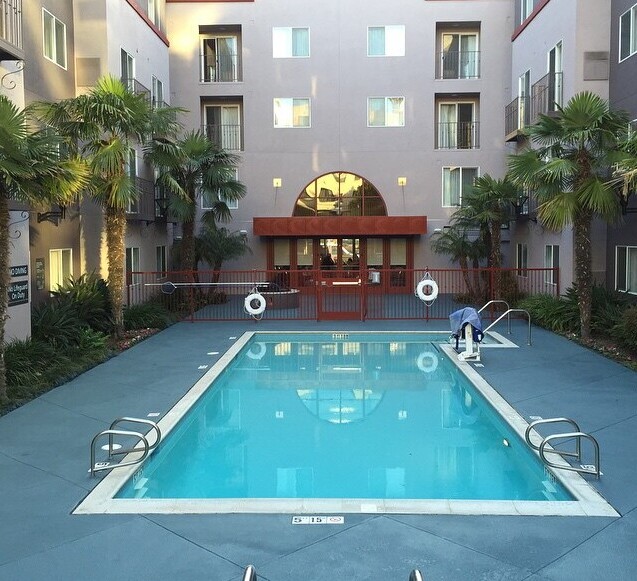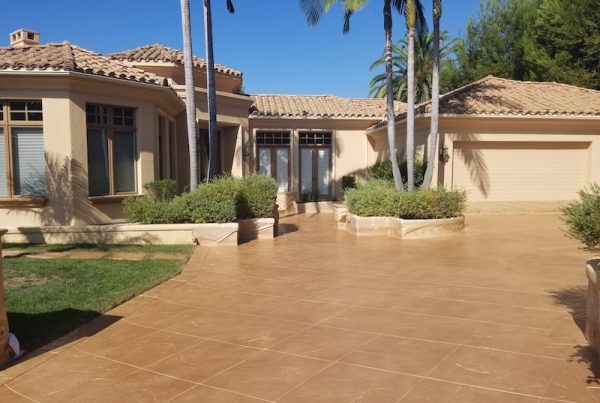Concrete surfaces in San Diego are constantly exposed to harsh sunlight, dry spells, and coastal moisture. This unique climate directly affects how long a concrete sealer lasts, and understanding this is critical for homeowners who want their surfaces to stay protected and beautiful for years.
Concrete sealing is more than just an aesthetic choice — it’s essential for protecting driveways, patios, and walkways from weathering, water intrusion, and surface damage. But how long does a concrete sealer really last in San Diego? Let’s explore the variables and signs to watch for, as well as professional advice for optimal maintenance.
Why Concrete Sealing Matters in San Diego
San Diego’s coastal climate combines prolonged sunshine with high humidity, occasional rain, and salt-laden air. These elements can wear down unsealed or poorly sealed concrete surfaces quickly, leading to cracks, color fading, and even surface erosion. A quality concrete sealer acts as a protective barrier, extending the lifespan and improving the appearance of your concrete installations.
Factors That Affect Sealer Longevity
UV Exposure
Sunlight is one of the biggest enemies of concrete sealers. In San Diego, where UV levels are high year-round, cheaper sealers can degrade within a year. High-grade sealers typically last longer — up to 3–5 years — depending on the product type.
Traffic Load
Driveways and patios with frequent foot or vehicle traffic will experience faster wear. High-use areas should be resealed more frequently, especially if exposed to abrasive conditions.
Type of Sealer Used
Acrylic sealers, often used for decorative concrete, typically last 1–3 years. Epoxy and polyurethane sealers offer more durability but may not always be suitable for outdoor use. Penetrating sealers, such as silane-siloxane blends, are preferred for long-term outdoor protection in places like San Diego.
Climate-Specific Wear in Coastal Areas
San Diego’s salty air can corrode concrete from within if left unsealed. Moisture that penetrates through untreated surfaces can also freeze and expand in colder months, causing cracks. Sealing helps resist both salt intrusion and moisture penetration.
Additionally, high humidity mixed with strong sunshine can accelerate the breakdown of certain sealers. This combination makes regular inspection and maintenance crucial.
Signs Your Sealer is Wearing Off
Be on the lookout for these warning signs:
- Water no longer beads up on the surface
- Color fading or dull finish
- Visible cracks or white patches (efflorescence)
- Slippery or dusty texture
- Stains soaking into the concrete
If you notice any of these, it’s time to reseal.
Residential vs. Commercial Sealer Durability
- Residential Settings: Home patios and driveways sealed with mid-range products often require resealing every 2–3 years.
- Commercial Applications: High-grade sealers used in commercial zones (like sidewalks, retail entries, etc.) are chosen for their longer durability — often 4–6 years with proper upkeep.
Recommended Resealing Frequency for San Diego
Depending on the type of sealer and traffic level:
- Acrylic Sealers: Every 1–2 years
- Penetrating Sealers: Every 3–5 years
- Polyurethane or Epoxy: Every 5–7 years (indoors or low UV exposure only)
We recommend checking your concrete every spring or fall for signs of wear.
Expert Tips to Extend Sealer Life
- Clean before sealing: Dirt or grime under the sealer can cause peeling.
- Don’t overseal: Too many layers may trap moisture.
- Use professional-grade sealers: DIY products often lack longevity.
- Avoid harsh chemicals for cleaning: They can degrade the sealant.
- Schedule resealing in spring or early fall: Avoid direct heat or rain.
When to Call in a Professional
While some DIY kits exist, they rarely match the durability of a professionally applied sealant. ICSurfaces uses commercial-grade equipment and applies sealants in precise conditions to ensure optimal bonding. Hiring professionals also guarantees that you get a sealer suited for San Diego’s unique climate.
Final Thoughts
Understanding the lifespan of concrete sealers in San Diego can save you time and money while preserving your property’s appearance. From sun exposure to salt air, many local factors influence sealer durability. A proactive maintenance plan — guided by experts like ICSurfaces — is your best bet for long-lasting protection.
For professional concrete sealing in San Diego, contact ICSurfaces today.
FAQs
How do I know if the sealer is working?
Pour a small amount of water on the surface. If it beads, the seal is still effective.
Does sealing concrete make it slippery?
Some sealers can create slick surfaces, but anti-slip additives can be included.
How long after sealing can I walk or drive on the surface?
Typically, 24 hours for foot traffic and 48–72 hours for vehicles, depending on the sealer type.
What is the best time of year to reseal concrete in San Diego?
Spring and early fall are best due to moderate temperatures and dry conditions.




